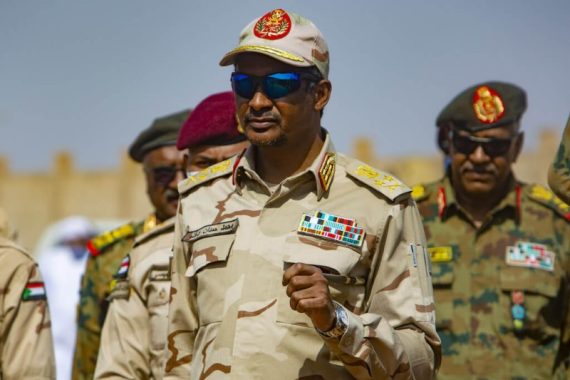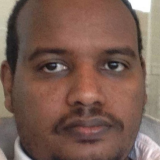I
n April 2023, war broke out in Sudan between the Sudanese National Army and the Rapid Support Forces (RSF), killing thousands and displacing millions. As the fighting has spread, many now fear that the entire country could be plunged into a full-blown war.
This war has its investors and beneficiaries; for years, the UAE has pursued its narrow interests by providing the RSF with a lifeline of money and weapons to carry out its genocide in Darfur. It’s time for the world to put pressure on the UAE to stop perpetuating this vicious cycle of violence.
The RSF was primarily created in 2013 by restructuring the notorious Janjaweed militia to support the central government’s counterinsurgency operations in Darfur and South Kordofan. In 2017, the Sudanese parliament passed a law legitimizing its activities, even though the militia has reportedly committed countless crimes and atrocities, including the destruction of villages, the killing of protesters, sexual assault and rape, and the unlawful detention of activists.
The UAE’s support for the militia comes in various forms, from direct funding to logistics and military equipment. In December 2019, an investigative report revealed that the militia received vehicles from the UAE that could be easily modified and equipped with machine guns. The report also revealed how UAE-based front companies, such as Tradive, were used to channel the funds to the militia.
Escalated military support
During the ongoing war, and in flagrant violation of the UN arms embargo resolution, the UAE escalated its military support to the militias through Chad, where, under the guise of a humanitarian operation, it established an airport and a hospital to transfer weapons and ammunition to the militias and to treat militia fighters. The national army reportedly destroyed a UAE military shipment to the militia in Nyala, South Darfur.
According to military sources, the shipment included drones, ammunition, advanced rocket launchers, and sophisticated communications systems. At the beginning of the war, the RSF militia received military aid from the Wagner Group through the al-Khadim airbase in eastern Libya, which was controlled by General Haftar, the notorious UAE-backed warlord. According to the U.S. Treasury Department, the Wagner Group also supplied the RSF with surface-to-air missiles.
The UAE is also the hub for the RSF militia’s social media team, which the militia brothers run to disinform the world about their ongoing genocides and violations. Previously, an investigative report revealed that a Dubai-based private equity firm was helping the militia lobby British parliamentarians and influence their opinions about the RSF militia’s crimes in the ongoing war.
The UAE support extends to diplomatic and political support for the militia. For example, the UAE has so far failed to cooperate and implement the sanctions imposed by the U.S. on the companies and leaders of the RSF militia. The UAE is also a safe haven for the militias’ leader. Recently, Dagalo made his first appearance since the outbreak of the war; flight records show that he arrived in Addis Ababa on a royal jet that had flown from Abu Dhabi to Uganda’s Entebbe International Airport.
Why does the UAE support the RSF?
In fact, there are several reasons for the UAE to invest heavily in the RSF militia. In recent years, the UAE has begun working on agricultural projects and signed a $6 billion contract to build a Red Sea port. In April 2020, the UAE hired a firm to lobby the military council, of which the militia was then a core part, to take control of the PortSudan Facility, the country’s most important facility.
Assuming the militia emerges victorious in this war, the UAE will have a strong ally to complete these plans and further its political agenda. In this scenario, the UAE will import more raw gold from Sudan to the UAE. The UAE will also find it easier to resume its shadowy recruitment of Sudanese and send them as soldiers to fight in Libya. Thus, it could be argued that the UAE is not interested in seeing any democratic experiment in the Middle East region that might influence the regime dissidents at home.
This military support provided the militias with the necessary tools to commit countless crimes, such as attacking hospitals, churches, and media facilities, and setting up markets to sell women as slaves. In the city of Wad Madani, the militias engaged in large-scale looting of homes and markets, as well as the UN World Food Programme’s warehouses, which provide life-saving food and nutrition to 20,000 children and pregnant and lactating women. In addition, tens of thousands were forced to leave the city to escape this hell—their flight, however, was prevented by the militia. In a serious development, the militia offered to protect villages in exchange for youth joining their ranks.
Impact on the Darfur region
The UAE’s support for militias has had a more significant and devastating impact in the Darfur region, where the militias have committed several acts of genocide and ethnic cleansing. Armed citizens descended from African tribes, particularly the Masalit, were raped and buried in mass graves in Ardamata and El Geneina. Independent reports have documented that the RSF militias and the Arab militias they supported humiliated their victims and called them slaves as they chased from street to street. In some cases, RSF militiamen recorded innocent civilians as they were being executed. In other areas of Darfur, refugee camps have been besieged, killing and injuring thousands.
The UAE’s irresponsible intervention also caused diplomatic tensions in the region and threatened to exacerbate the situation in Darfur. In December 2023, after being publicly accused by a Sudanese official of facilitating arms transfers to the RSF militia, the Chadian government declared four Sudanese diplomats personae non gratae. In return, the Sudanese government announced that it would take reciprocal measures soon thereafter. Chad initially decided not to intervene directly, and later reversed this decision after the UAE signed several agreements and memorandums promising to help Chad with some energy projects.
By fueling the war in Sudan through its RSF alliance, the UAE insidiously risks threatening the entire Sudanese social fabric and deepening the divisions between tribal and ethnic groups. It can’t be overlooked that the tribes and local communities from which most of the militias come will be targeted and discriminated against in postwar Sudan.
So far, many voices have condemned this military support. For example, a group of Democratic members of the U.S. Congress sent a letter to the UAE Foreign Minister expressing their concern about the continued funding of the militias. The move was welcomed by the U.S. Assistant Secretary of State for African Affairs Molly Phee. In addition, scholars, human rights advocates, and a leading expert on Sudan, international law, and the prevention of atrocities issued a statement calling for an end to all sources of UAE funding for the militias. Meanwhile, Sudanese around the world have taken to the streets and launched social media campaigns demanding an end to this military support.
Recommended
Violation of international law
In response to all this fierce criticism, the UAE tried to deceive the world by denying any involvement in Sudan, despite the overwhelming evidence against it. In a clear PR move, the UAE sent humanitarian aid to Sudanese refugees in South Sudan.
Undeniably, the national army currently includes many Bashir-era leaders, some of whom are corrupt and bought by the RSF. In the past, the UAE has expressed reservations about any peace deal that might give these leaders and the Islamists a chance to return to power. The UAE’s support for a war militia that has no political project other than seizing power and advancing its interests in the country is a worse scenario than pushing for the reform of a unified national army and hoping for a peaceful democratic transition. It’s worth noting that Dagalo previously threatened to plunge the entire country into chaos if anyone tried to integrate his troops into the national army.
Legally, the UAE’s support for the RSF militia is a clear violation of foreign territorial sovereignty, which is prohibited under international law. It sets a grave precedent and must be condemned by all citizens around the world.
The continuation of this military support and funding means more genocide in Darfur and more lives to be taken. Direct and immediate diplomatic action by world leaders and policymakers is needed to prevent these horrors from unfolding again before our eyes.
The leading ruthless enabler of all this ongoing destruction and genocide must be exposed and stopped.





